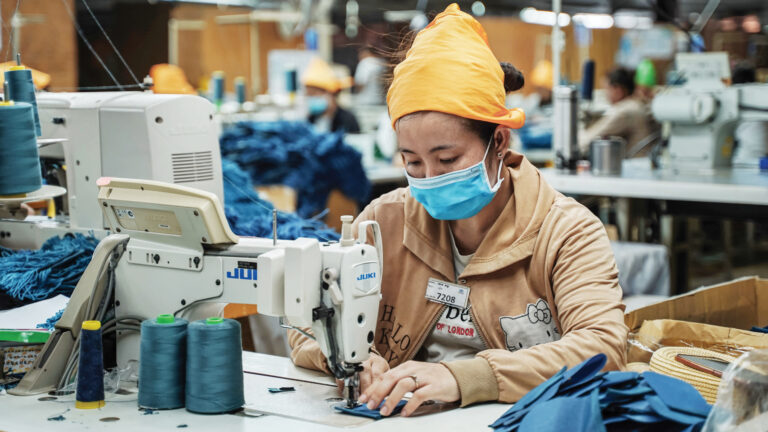
Security at sea presents complex challenges for ASEAN nations
Australian maritime security expert Bec Strating shares her thoughts on challenging issues and promising solutions for ASEAN nations
Information to help you and your family live long, happy and healthy lives
Also called: 2019-nCov, 2019 Novel Coronavirus
Coronaviruses (Latin. Corona = “wreath, crown”, from characteristic club-shaped spikes that project from their surface) are a large family of viruses which may cause illness in animals or humans. In humans, several coronaviruses are known to cause respiratory infections ranging from the common cold to more severe diseases such as Middle East Respiratory Syndrome (MERS) and Severe Acute Respiratory Syndrome (SARS).
The most recently discovered coronavirus causes the coronavirus disease, COVID-19, an illness that can affect your lungs and airways. The COVID-19 virus spreads primarily through droplets of saliva (spit) or discharge from the nose when an infected person speaks, coughs or sneezes.
Most people infected with the COVID-19 virus will experience mild to moderate respiratory illness and recover without requiring special treatment. The most common symptoms of COVID-19 are fever, dry cough, and tiredness. Some patients may have aches and pains, nasal congestion, sore throat or diarrhea. These symptoms are usually mild and begin gradually. Some people become infected but only have very mild symptoms.
However, anyone can catch COVID-19 and become seriously ill. Even people with very mild symptoms of COVID-19 can transmit the virus. People of all ages who experience fever, cough and difficulty breathing should seek immediate medical attention.
As with other respiratory infections like the flu or the common cold, public health measures are critical to slow the spread of illnesses. Public health measures are everyday preventive actions that include:
To date, there is no vaccine and no specific antiviral medicines against COVID-19. Mild symptoms can usually be treated at home. If your symptoms are severe, medical care may be needed until you recover. However, people with serious illness may need to be hospitalized so that they can receive life-saving treatment for complications. Most patients recover thanks to such care.
Possible vaccines and some specific drug treatments are currently being explored. They are being tested through clinical trials in many countries, and global organizations, such as the WHO, are coordinating efforts to develop vaccines and medicines to prevent and treat COVID-19.

Australian maritime security expert Bec Strating shares her thoughts on challenging issues and promising solutions for ASEAN nations

Focus Cambodia shares our guide to the best places to drink when in Siem Reap

As CEO Nicolas Hollanders looks out from his office window onto the never-ending traffic on Norodom Boulevard, he can be more than pleased with the progress being made at BRED Bank Cambodia

Cambodia’s National Bank Governor, Dr Chea Serey, pushes multiple boundaries beyond their established standards

Focus Cambodia shares our guide to where to eat & drink when visiting the Kingdom’s South, homing in on Kep and Kampot

A child of the coastal city of Sihanoukville, Cambodia’s hip hop superstar shook up the Kingdom’s music industry. In an exclusive interview, Focus Cambodia talks to the artist who continues to rock the scene

Focus Cambodia spoke with Credit Bureau Cambodia CEO, Oeur Sothearoath, about how CBC makes it easier for Cambodians to borrow, at home and abroad

Focus Cambodia shares our guide to the best places to stay when in Siem Reap

Cambodia’s Industrial Transformation Map for Textile and Apparel Industry 2023-2027 targets markets, materials, and worker skills to ensure industry’s future

Golfers find plenty of opportunity on award-winning courses desIgned by the sport’s greatest

Focus Cambodia shares our guide to the best places to eat when in Phnom Penh

Khmer creativity knows no limits when it comes to painting, sculpture and crafts. Here are a few of the fine galleries in Phnom Penh and Siem Reap
